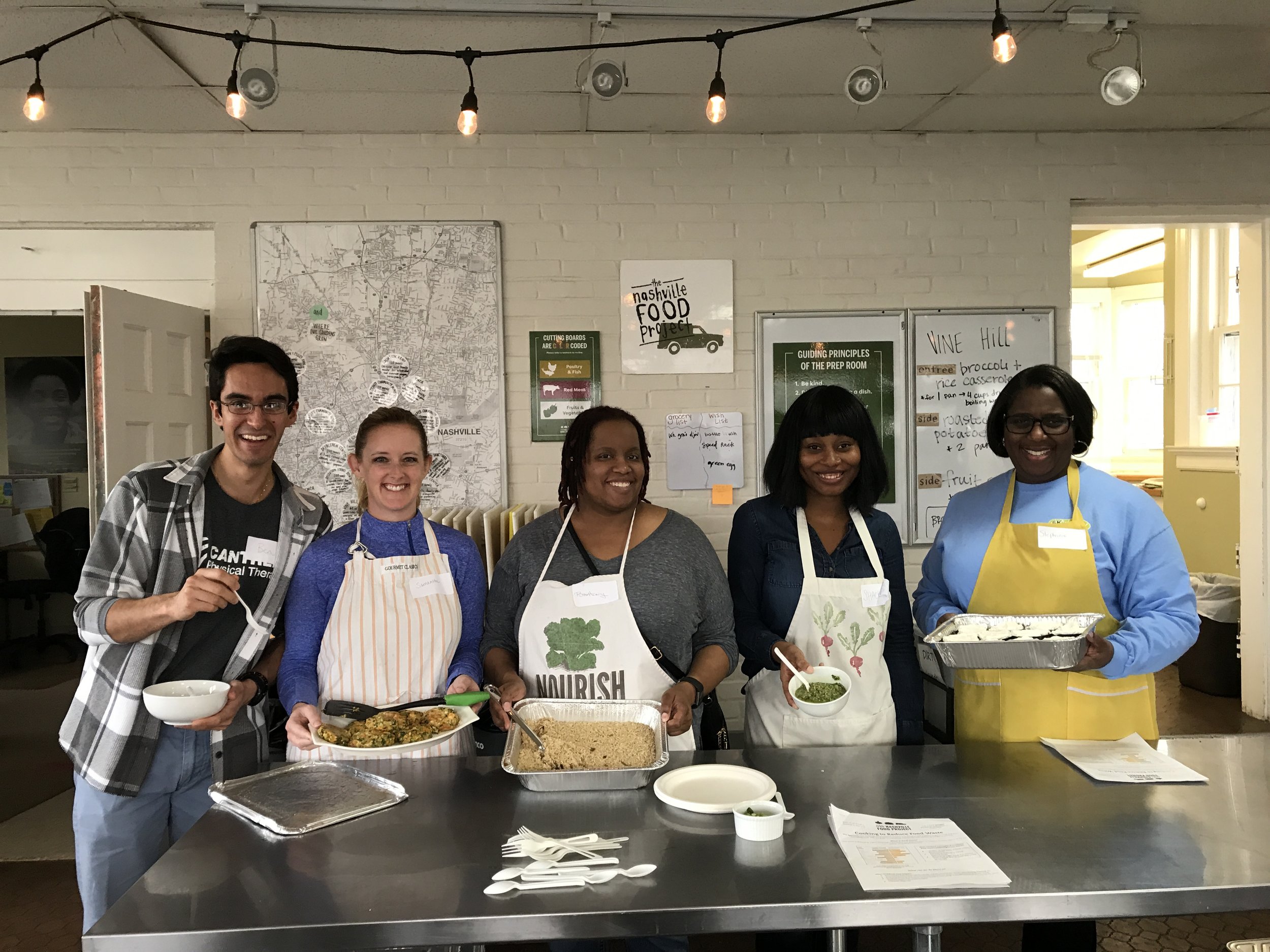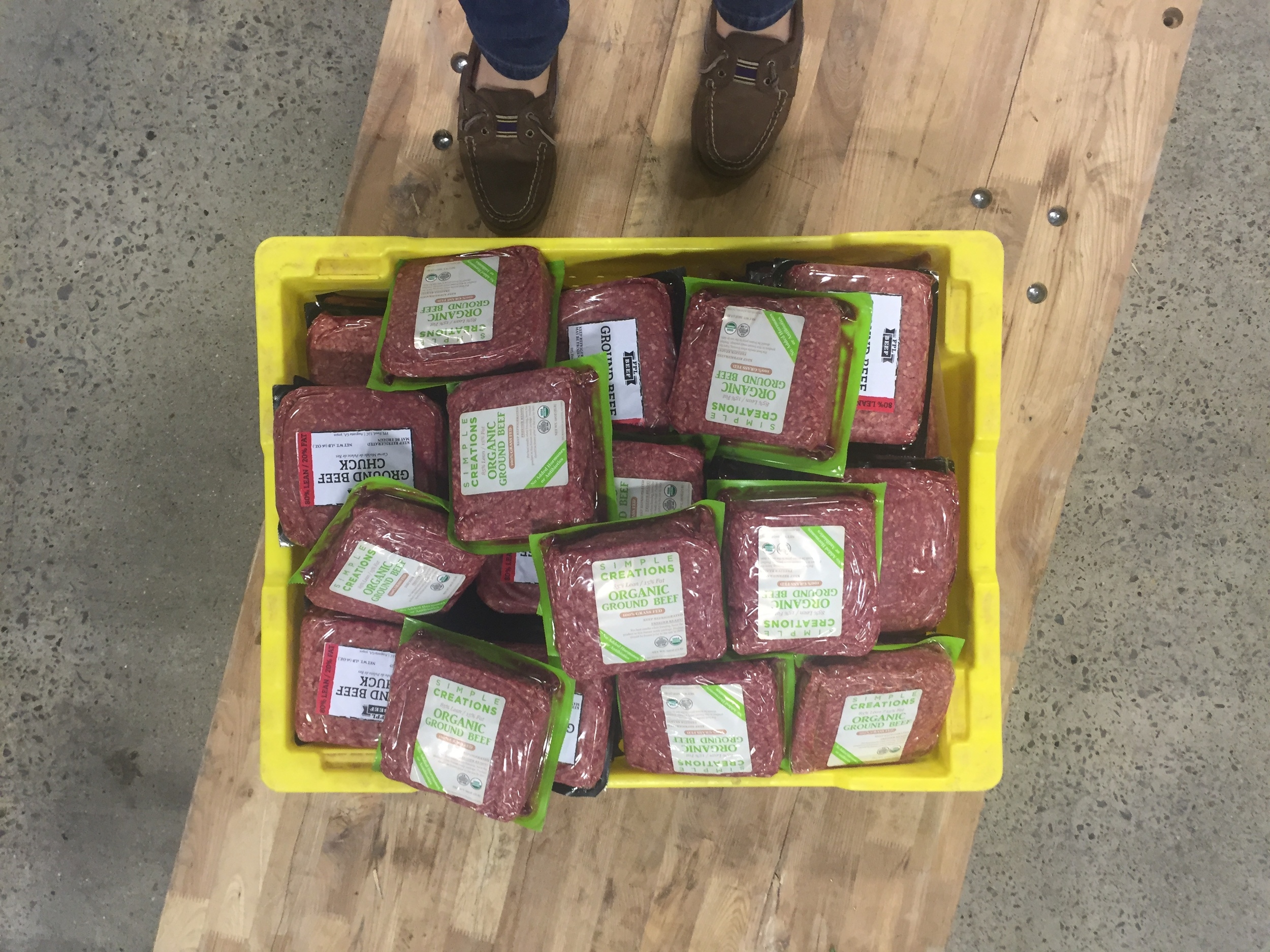Food Waste Prevention
Today on the blog, we visit with two of our trusted protein partners—Porter Road Butcher and Tennessee Grass Fed. The level of commitment and generosity from these folks with their sharing of high-quality goods is an extraordinary gift.
A recent donation from Harpeth Moon Farms of 150 pounds of kale really had the meals team busy brainstorming all the ways to prepare and share these greens— stewarding a precious, nutritious gift to its highest best use. We share some uses for kale in this post along with a recipe.
For Week 2 of Earth Month Challenge, we’re taking a look at food waste.In the U.S. alone, food waste is estimated at between 30-40 percent of all food produced. Wasted food is the largest contributor of material placed in landfills, which produces approximately 15% of all methane emissions. The water, energy, and labor used to produce wasted food could have been directed for other purposes. Not to mention the nourishment that is wasted that could have gone to feed families in need.
At its very best and most intimate, food is a method of storytelling that can convey the soul of a community—its traditions, its rituals, rhythms and culture. At The Nashville Food Project, we honor this storytelling in different ways.
Winter holds space for all of us to deal with the hard truths of the year that has just passed. And through the sharp lens of winter’s harsh reality, it gives us something else too: the prospect of new beginnings, and with it, the arrival of spring.
Vanderbilt University Medical Center researchers studied our meals for children this summer to help us learn more about how meals are consumed—and to help us maximize economically sustainable nutrition for better child health. While we always try to include as many fresh vegetables from our gardens and local farms as possible, researchers formally measured the nutritional value of our meals. Then they looked at the parts of the meals children wanted to eat, and which parts were left on the plate.
For the Thanksgiving weekend, we pulled together a few recent, thought-provoking articles, podcasts and threads, from how to reduce waste to the story of Thanksgiving from the Indigenous perspective as well as an immigrant story of the holiday, and a Twitter thread that lifts up farm workers who help bring us the dishes that grace our tables on this day.
For November’s Simmer series dinner, the fabulous Chef Maneet Chauhan had the idea to host a Friendsgiving in our Community Dining Room. But rather than bring in the typical Thanksgiving turkey and sides, she wanted to see what she could whip up with just the ingredients we had on hand in our kitchen — a special Food Waste Challenge Friendsgiving to celebrate abundance.
So many Nashville restaurants have offered vital support to our work over the years, extending hospitality through generous donations of food, purchasing from Growing Together farmers, and more. As Nashville continues to change and grow, we’ve sadly seen some beloved restaurants make the decision -- for various reasons -- to close…
Did you know 28% of all waste in Nashville is compostable material? Here at TNFP, the idea and act of composting is a value: taking our forgotten bits, our discarded carrot ends, broken eggshells and spent coffee grounds and diverting them to be used as rich inputs for the earth which we've too often abused and abandoned. Learn how YOU can make gold out of your own leftovers, including FREE compost drop-off at select Metro convenience centers.
We’ve all been there before - the broccoli stems left over after a dinner party, strawberries that you meant to eat but didn’t get to - all thrown out and wasted. 40-percent of all food produced is wasted while at the same time 1 in 7 children are struggling with hunger according to Feeding America. Believe it or not, there are some staggering nutritional benefits to lowering your food waste…
Inspired by John T. Edge’s book The Potlikker Papers, our meals team has pulled together several southern-inspired menus for two classes on cooking to reduce food waste. Check out the menu and story behind our first class.
We know that 40% of all food produced in our country is thrown away, but we also know that it doesn’t have to be that way. Last year, we began working with the National Resources Defense Council (NRDC) to ramp up our food recovery efforts.
Earlier this month, The Nashville Food Project was invited to participate in an exciting event with state and local partners, including the Nashville Farmers’ Market, the Tennessee Department of Environment and Conservation (TDEC) and Metro Nashville Public Works, among others.
Did you know that 40% of all the food in our city gets thrown away? For the average Nashville family, that’s 20 pounds of food waste per month and $1,500 of food thrown away each year…
Last week we had one of our largest gleaning opportunities of the year -- a meat conference at the Gaylord Opryland Convention Center -- an event we have fondly been referring to as “MEATOPIA”. We rescued a grand total of 11,000 lbs of meat from this event -- what will be used for many months to feed our community…
Putting a dent in those numbers could feel daunting, but it’s an issue that we hope to continue working on in 2016. In addition to gleaning from farms, restaurants and grocery stores each week for meals, we’ll be partnering with Zero Percent, a Chicago-based organization that has developed a mobile app and online platform to maximize our food recovery efforts…


















Meals Coordinator Sarah Farrell shares a quick and easy(ish) way to cut hardy, resilient butternut squash, and we include a few favorite recipes too!